UAD Management Equips Students with Entrepreneur and Cooperative Skills
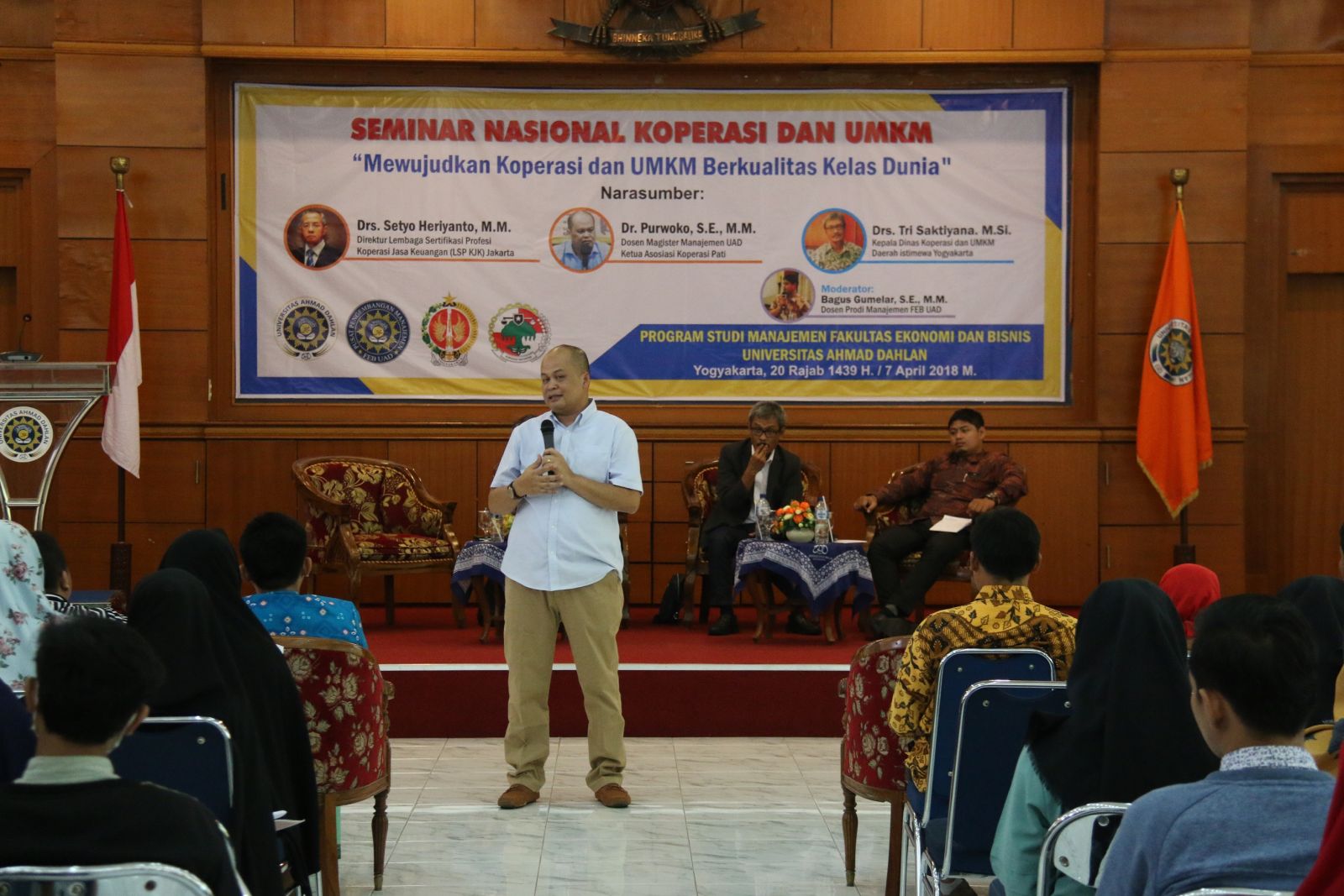
Although there is a tendency for it to increase, it is still lacking, considering the ideals of cooperative as Saka Guru (foundation) of Indonesian economy. Out of the 200 thousand cooperatives in Indonesia, only 3 of them are included in the 300 major cooperatives of the world. According to the International Cooperative Consultant (ICA), 3 of them are Koperasi Warga Semen Gresik (KWSG), Kospin Jasa, and Koperasi Karyawan Telkomsel (KISEL).
The contribution of Micro, Small and Medium Enterprises (UMKM) to the Indonesian economy reaches 60%. However, UMKM still have to face various challenges, such as access to capital, marketing, management, licensing, to competing with big investors.
In terms of management, not many UMKM have a clear legal entity. Thus, many UMKM still cannot be reached by financing institution (bankable). The government has provided a solution with the existence of Small Micro Business License (IUMK) so that UMKM can be accessed by financial institution. However, it still needs to be socialized more intensively.
Looking at these problems, Management study program of Faculty of Economics and Business (FEB), Ahmad Dahlan University (UAD) held a national seminar on cooperatives and UMKM with the headline "Realizing World-Class Cooperatives and UMKM".
Present as the speakers were Drs. Setyo Heriyanto, M.M. as the Director of Financial Services Cooperative (LSP KJK) Jakarta, Dr. Purwoko, S.E., M.M. who is a Management lecturer from UAD, as well as the Head of the Association of Pati Cooperatives, and Drs. Tri Saktiyana, M.Si. who also serves as the Head of Department of Cooperatives and UMKM DIY.
The event which took place on Saturday (7/4/2018) at the auditorium of campus 1 UAD on Jln. Kapas 9, Semaki, Yogyakarta aimed to discuss strategies for managing cooperatives and UMKM that would be beneficial to the welfare of the community. In addition, it served as a medium for socialization of the policy of empowerment of cooperatives and UMKM by the government and related parties. For students, the event became a means of learning about entrepreneurship and cooperatives. (ard / doc)
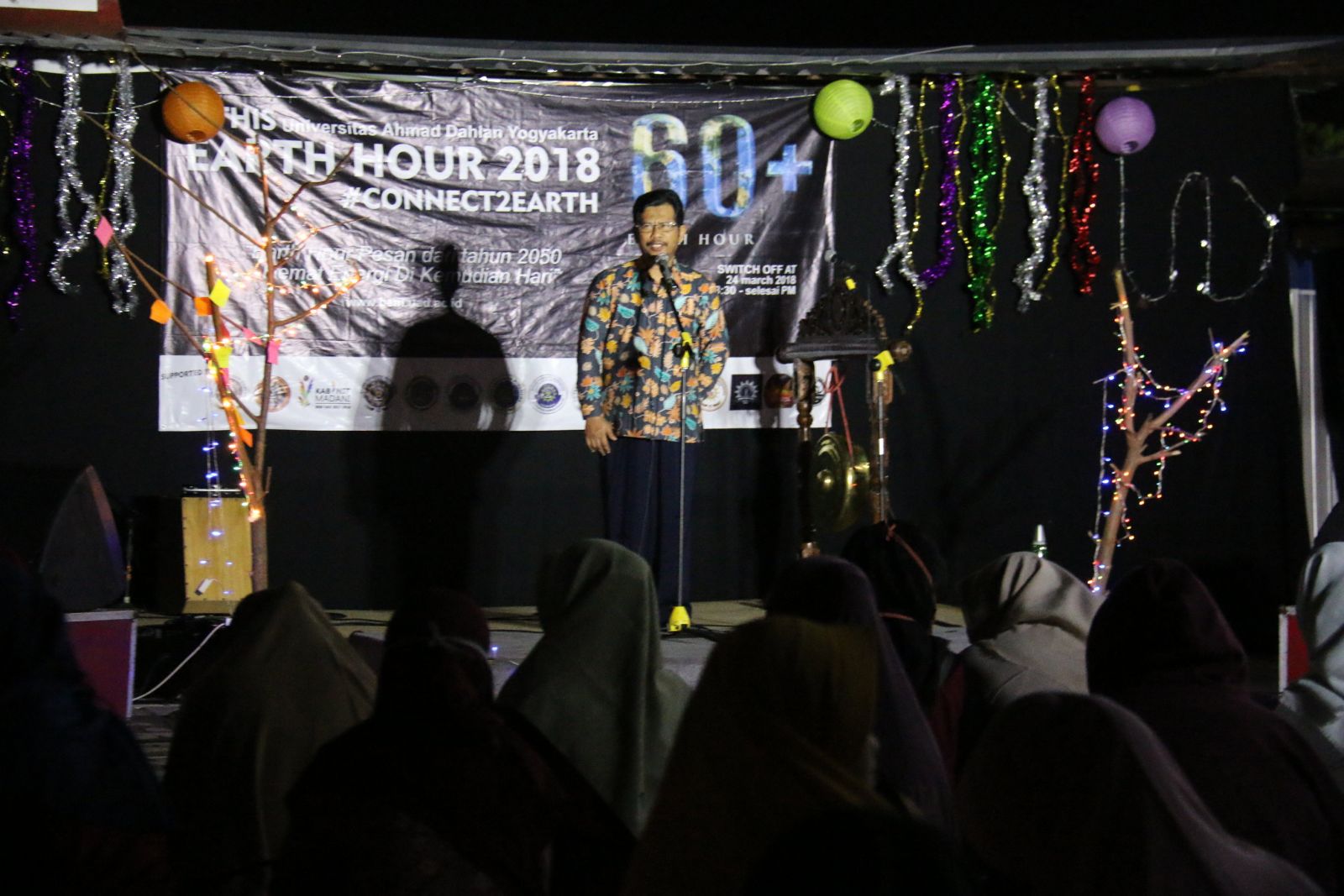 Renewable energy is energy source from nature that can be produced continuously without having to wait for a long period of time. It is in contrast to fossil-based energy. On the day of Earth Hour 2018, Ahmad Dahlan University (UAD) commemorated it by turning off the lights in kampus 4 areas from 20:30 to 21:30 pm.
Renewable energy is energy source from nature that can be produced continuously without having to wait for a long period of time. It is in contrast to fossil-based energy. On the day of Earth Hour 2018, Ahmad Dahlan University (UAD) commemorated it by turning off the lights in kampus 4 areas from 20:30 to 21:30 pm.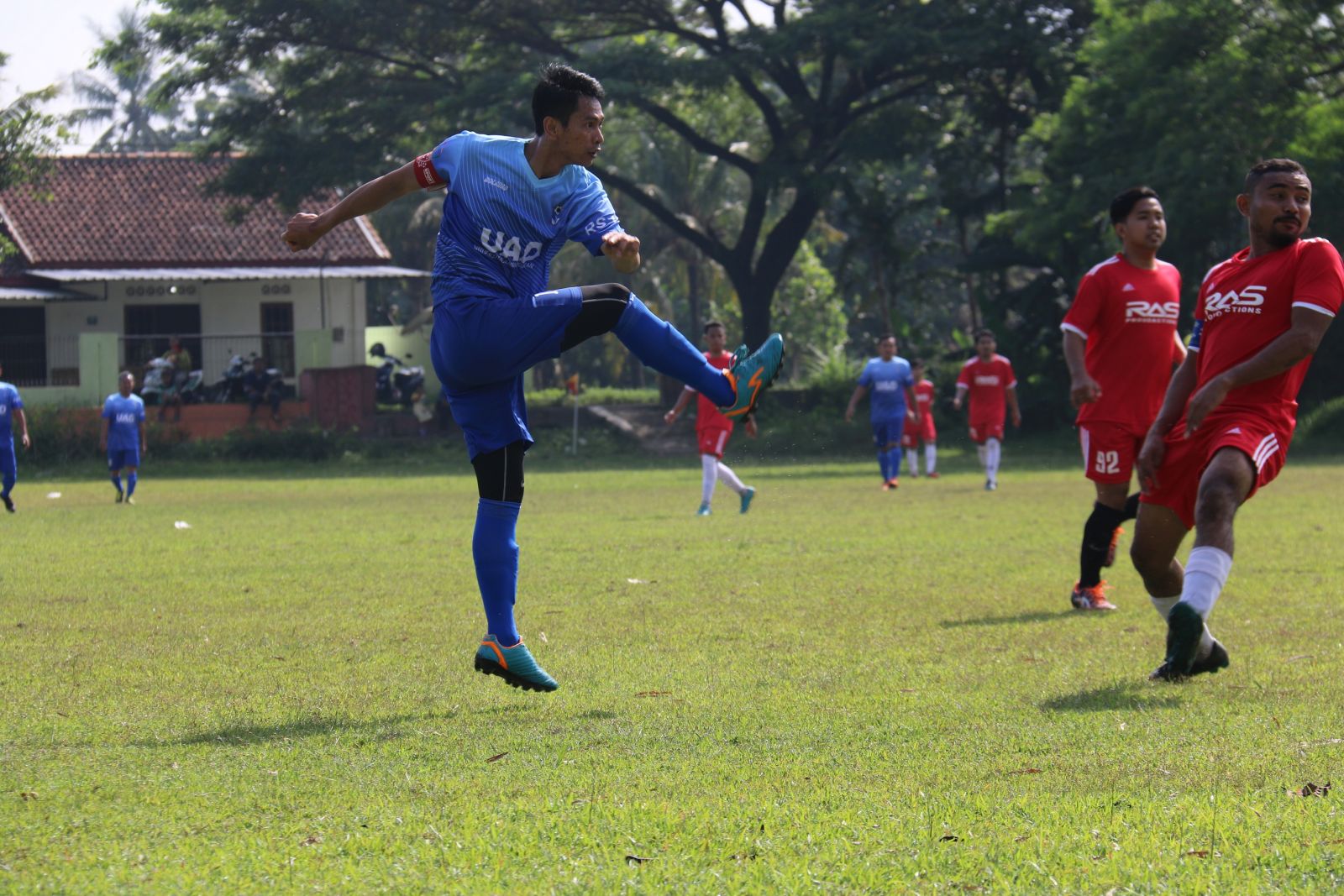 The internal League of Ahmad Dahlan University (UAD) Yogyakarta is a football league that is held with the purpose of giving a means for students to develop their talent. In addition, an equally important role of the event is to strengthen inter-departmental and faculty relationships as well as introduce “UAD FC” football club.
The internal League of Ahmad Dahlan University (UAD) Yogyakarta is a football league that is held with the purpose of giving a means for students to develop their talent. In addition, an equally important role of the event is to strengthen inter-departmental and faculty relationships as well as introduce “UAD FC” football club.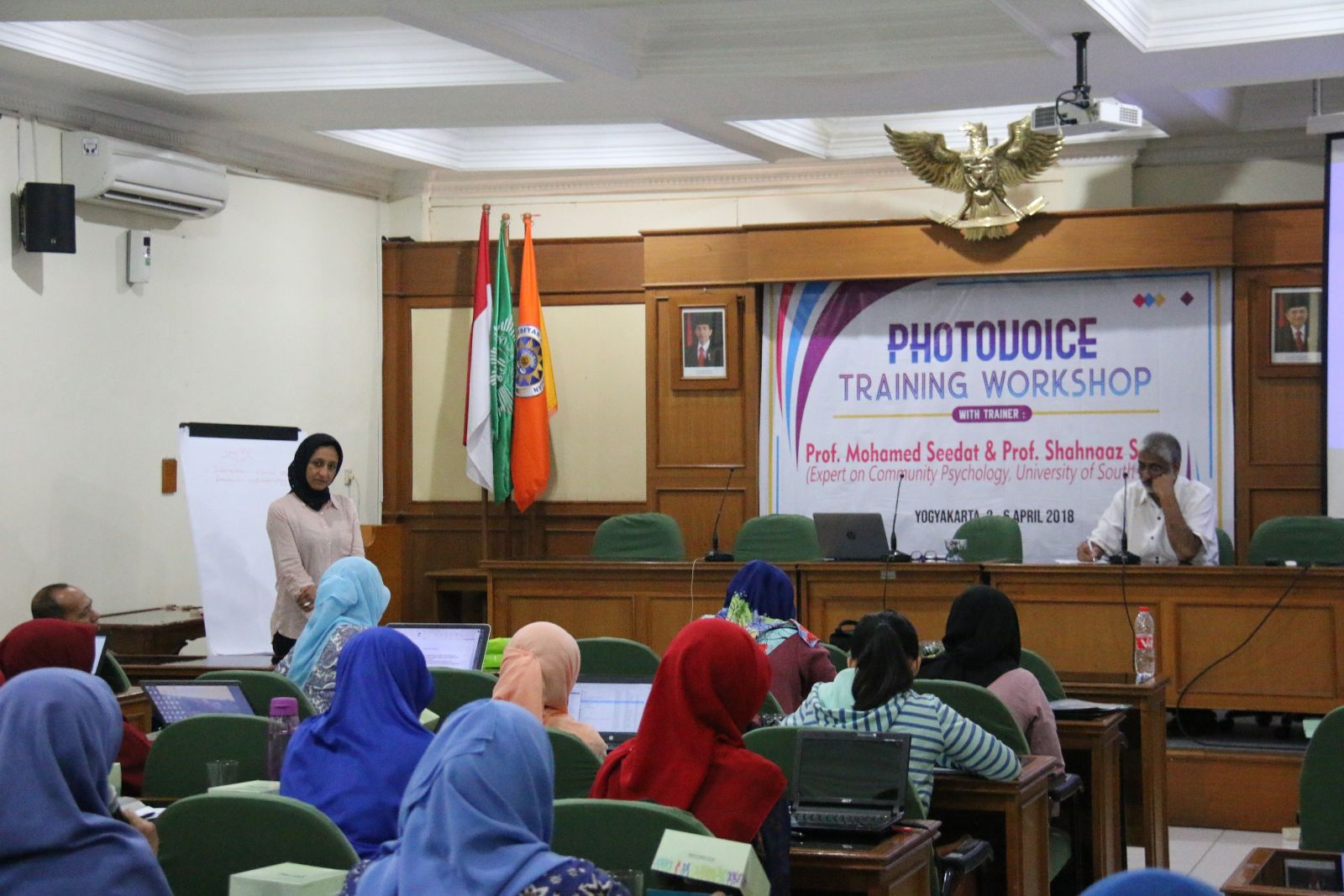 Faculty of Psychology of Ahmad Dahlan University (UAD) Yogyakarta held a research collaboration on photovoice with the University of South Africa. This program is the implementation of the MoU involving both parties that has been going on for two years.
Faculty of Psychology of Ahmad Dahlan University (UAD) Yogyakarta held a research collaboration on photovoice with the University of South Africa. This program is the implementation of the MoU involving both parties that has been going on for two years.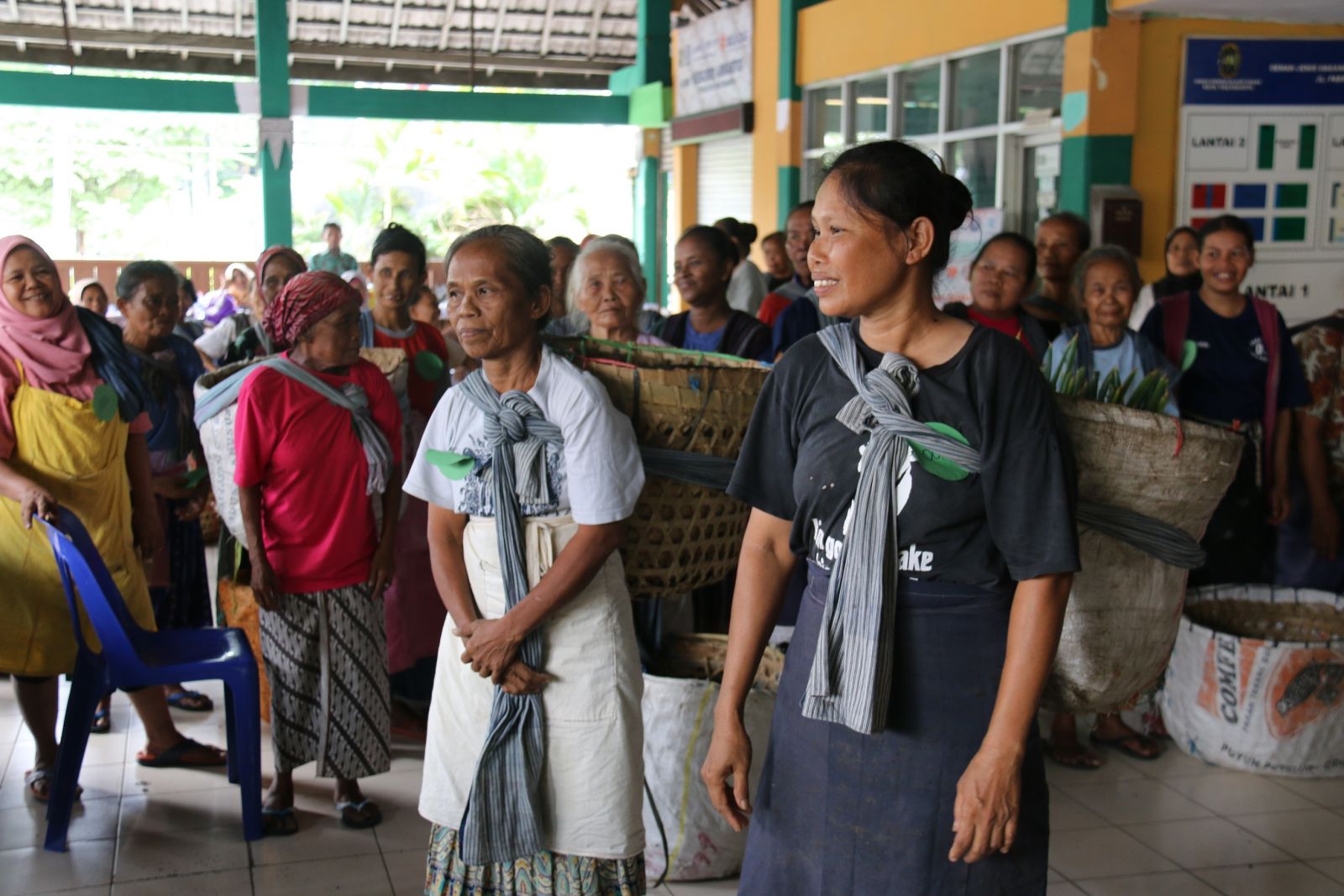 A total of 33 woman carrying laborers at Beringaharjo market, Yogyakarta on Thursday (5/4/2018) seemed happy to participate in a fashion show contest in the East Pendopo of Beringharjo Market. This event was to commemorate the 22nd Milad of Faculty of Pharmacy Universitas Ahmad Dahlan (UAD) Yogyakarta, Kartini’s Day, and World Health Day.
A total of 33 woman carrying laborers at Beringaharjo market, Yogyakarta on Thursday (5/4/2018) seemed happy to participate in a fashion show contest in the East Pendopo of Beringharjo Market. This event was to commemorate the 22nd Milad of Faculty of Pharmacy Universitas Ahmad Dahlan (UAD) Yogyakarta, Kartini’s Day, and World Health Day.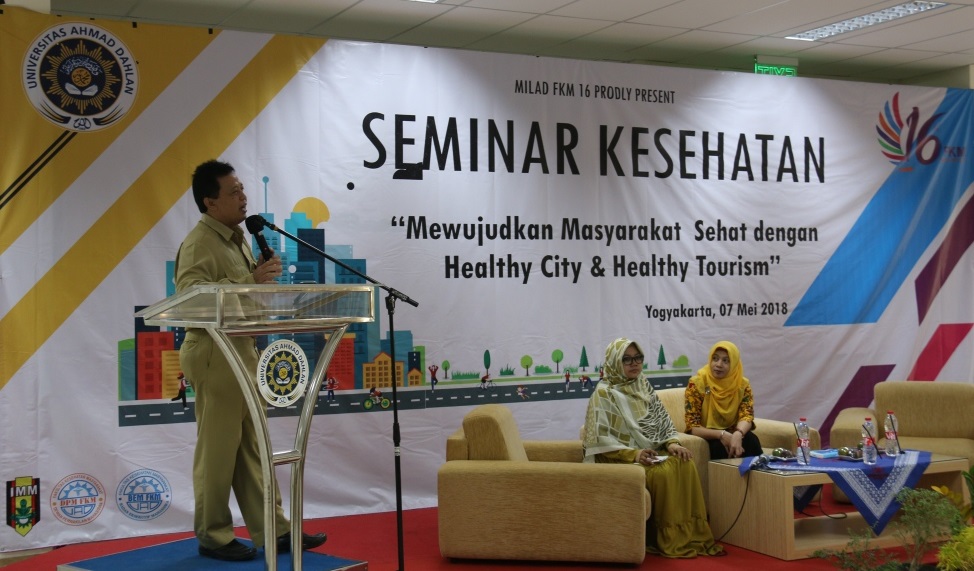 Fakultas Kesehatan Masyarakat (FKM) Universitas Ahmad Dahlan (UAD) menyelenggarakan seminar kesehatan dengan tajuk “Mewujudkan Masyarakat Sehat dengan Healthy City dan Healthy Tourism”, Senin (7/5/2018). Kegiatan yang berlangsung di aula barat kampus 4 UAD, Jln. Ringroad Selatan, Tamanan, Bantul, Yogyakarta, merupakan salah satu rangkaian Milad FKM ke-16.
Fakultas Kesehatan Masyarakat (FKM) Universitas Ahmad Dahlan (UAD) menyelenggarakan seminar kesehatan dengan tajuk “Mewujudkan Masyarakat Sehat dengan Healthy City dan Healthy Tourism”, Senin (7/5/2018). Kegiatan yang berlangsung di aula barat kampus 4 UAD, Jln. Ringroad Selatan, Tamanan, Bantul, Yogyakarta, merupakan salah satu rangkaian Milad FKM ke-16.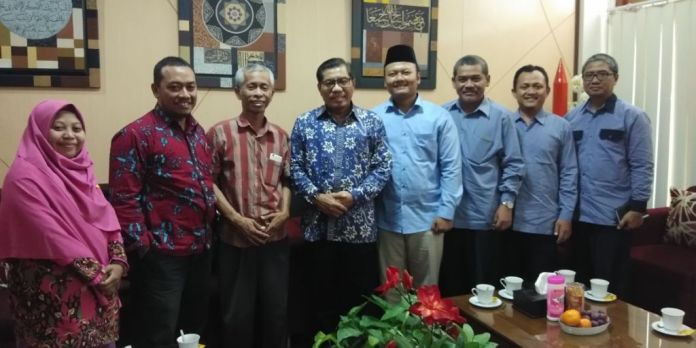 Majelis Pustaka dan Informasi (MPI) Pimpinan Wilayah Muhammadiyah (PWM) DIY bersama pengelola mediamu.id, belum lama ini mengunjungi Universitas Ahmad Dahlan (UAD) Yogyakarta. Tim diterima Rektor UAD Dr. Kasiyarno, M.Hum. di ruang rektor kampus 1 Jln. Kapas 9 Semaki, Yogyakarta, didampingi Wakil Rektor I Dr. Muchlas, M.T. dan Kepala Kantor Universitas Dr. Hadi Suyono, S.Psi, M.Si.
Majelis Pustaka dan Informasi (MPI) Pimpinan Wilayah Muhammadiyah (PWM) DIY bersama pengelola mediamu.id, belum lama ini mengunjungi Universitas Ahmad Dahlan (UAD) Yogyakarta. Tim diterima Rektor UAD Dr. Kasiyarno, M.Hum. di ruang rektor kampus 1 Jln. Kapas 9 Semaki, Yogyakarta, didampingi Wakil Rektor I Dr. Muchlas, M.T. dan Kepala Kantor Universitas Dr. Hadi Suyono, S.Psi, M.Si.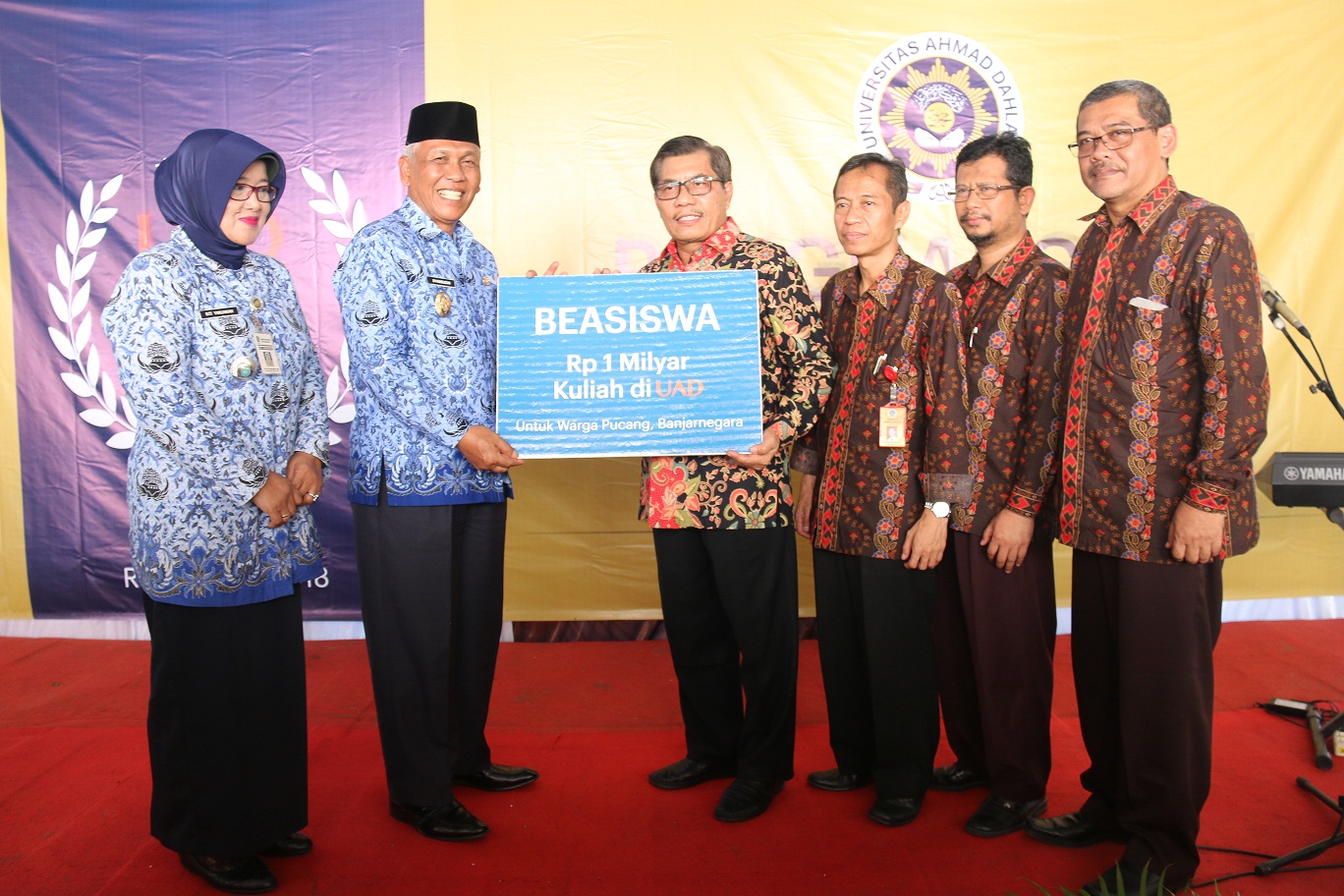
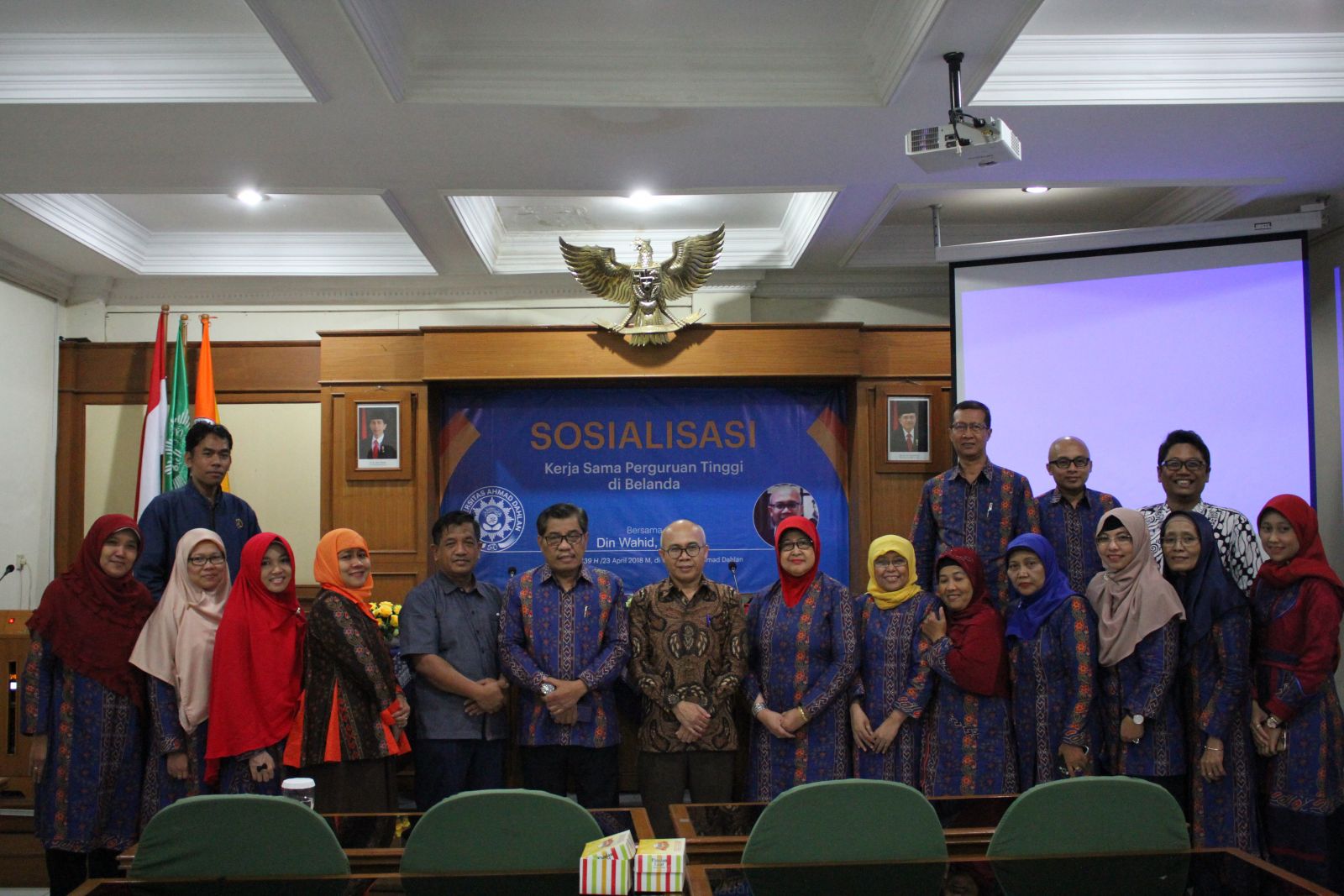 “Indonesia sekarang lebih bermartabat di mata dunia, hubungan kerja sama semakin membaik. Kerja sama dapat dilakukan dengan langkah-langkah kecil dan terukur. Selanjutnya, diperkuat dengan Memorandum of Understanding (MoU). Indonesia merupakan negara yang unik, walau di tengah-tengah keterbatasan fasilitas. Cara mengajar di madrasah menjadi salah satu keunikan Indonesia di mata Belanda, khususnya dalam bidang pendidikan. Memanfaatkan keunikan yang dimiliki Indonesia untuk penelitian, menjadi cara untuk menjalin kerja sama,” ujar Din Wahid, Ph. D., Atase Pendidikan dan Kebudayaan Kedutaan Besar Republik Indonesia (KBRI) di Den Haag Belanda.
“Indonesia sekarang lebih bermartabat di mata dunia, hubungan kerja sama semakin membaik. Kerja sama dapat dilakukan dengan langkah-langkah kecil dan terukur. Selanjutnya, diperkuat dengan Memorandum of Understanding (MoU). Indonesia merupakan negara yang unik, walau di tengah-tengah keterbatasan fasilitas. Cara mengajar di madrasah menjadi salah satu keunikan Indonesia di mata Belanda, khususnya dalam bidang pendidikan. Memanfaatkan keunikan yang dimiliki Indonesia untuk penelitian, menjadi cara untuk menjalin kerja sama,” ujar Din Wahid, Ph. D., Atase Pendidikan dan Kebudayaan Kedutaan Besar Republik Indonesia (KBRI) di Den Haag Belanda.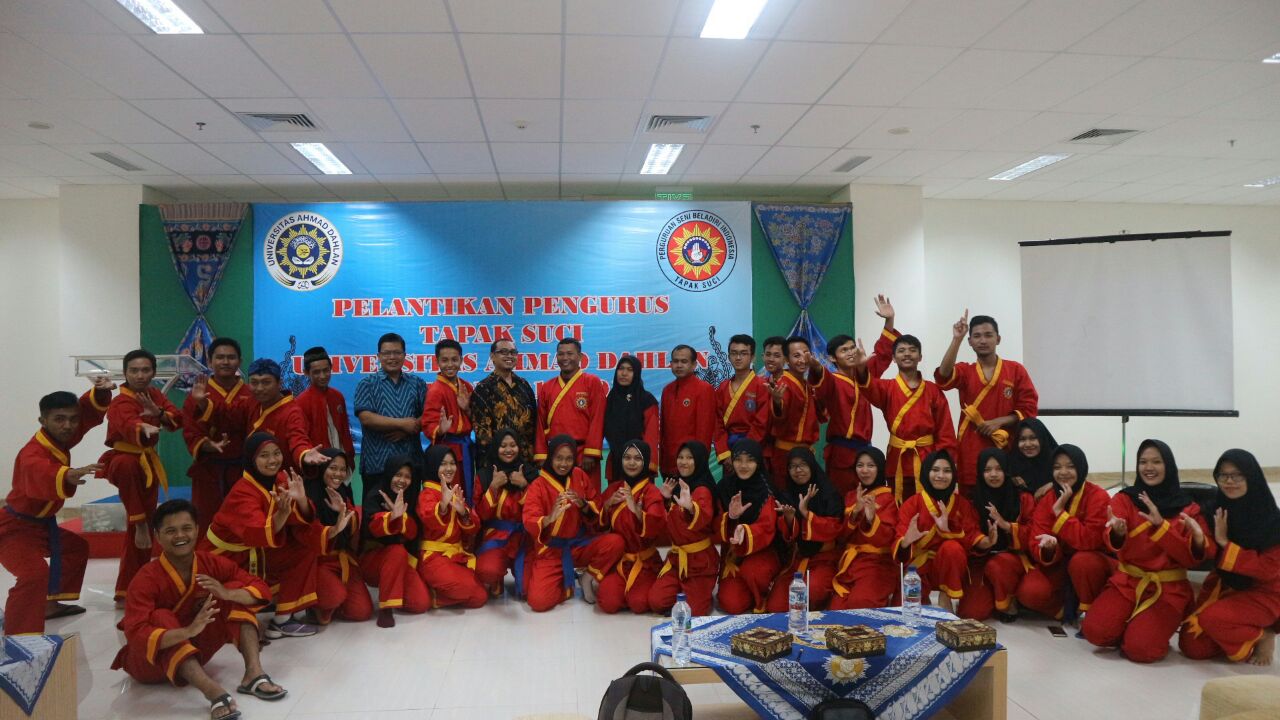 Kamis (26/4/2018) telah dilakukan pelantikan pengurus baru Tapak Suci (TS) Universitas Ahmad Dahlan (UAD). Bertempat di aula kampus 4 UAD, Jln. Ringroad Selatan, Tamanan, Bantul, Yogyakarta, sebanyak 34 kader Tapak Suci berjanji untuk melanjutkan estafet kepemimpinan.
Kamis (26/4/2018) telah dilakukan pelantikan pengurus baru Tapak Suci (TS) Universitas Ahmad Dahlan (UAD). Bertempat di aula kampus 4 UAD, Jln. Ringroad Selatan, Tamanan, Bantul, Yogyakarta, sebanyak 34 kader Tapak Suci berjanji untuk melanjutkan estafet kepemimpinan.